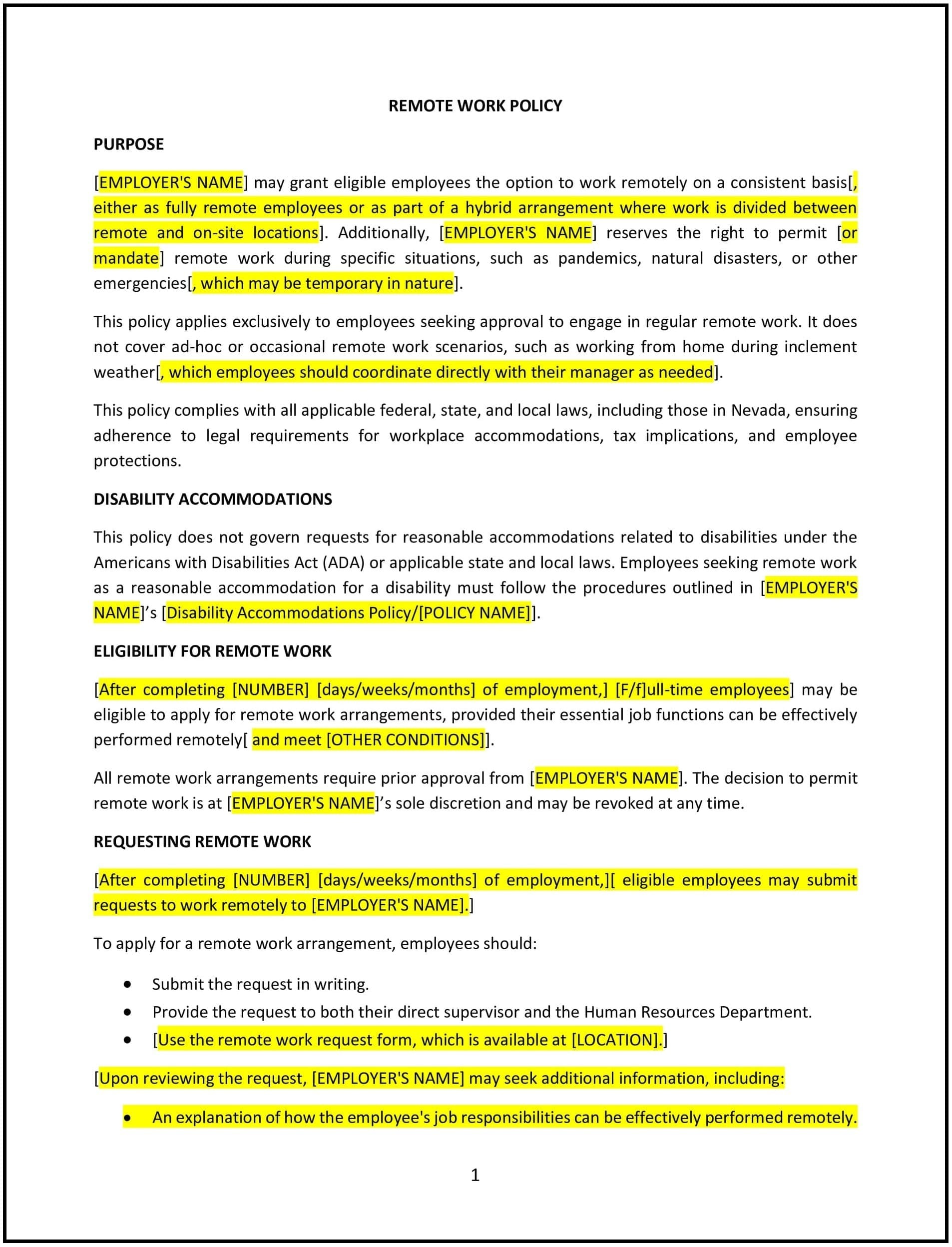Got contracts to review? While you're here for policies, let Cobrief make contract review effortless—start your free review now.

Customize this template for free
Remote work policy (Nevada)
This remote work policy is designed to help Nevada businesses manage remote work arrangements effectively. It outlines guidelines for eligibility, expectations, and resources for employees working remotely, ensuring productivity and improving compliance with company policies and Nevada labor laws.
By adopting this policy, businesses can support flexible work arrangements while maintaining operational efficiency and fostering employee satisfaction.
How to use this remote work policy (Nevada)
- Define eligibility criteria: Specify which roles are eligible for remote work, considering job requirements and operational needs.
- Establish work schedules: Outline expectations for work hours, availability, and communication during remote work arrangements.
- Set performance expectations: Clarify deliverables, productivity standards, and how performance will be monitored while working remotely.
- Provide technology and resources: Specify the tools and equipment provided by the company, such as laptops, software, or internet stipends, and address employee responsibilities for maintaining them.
- Ensure data security: Include guidelines for securing company data, such as using VPNs, encrypted devices, and secure connections.
- Address workspace requirements: Encourage employees to create a dedicated workspace that minimizes distractions and supports productivity.
- Specify communication protocols: Require regular check-ins, virtual meetings, or other communication methods to maintain connectivity and team collaboration.
- Review compliance: Ensure that remote work arrangements comply with Nevada labor laws, such as tracking work hours for non-exempt employees.
Benefits of using this remote work policy (Nevada)
This policy provides several benefits for Nevada businesses:
- Enhances flexibility: Supports work-life balance by allowing employees to work remotely while meeting business needs.
- Improves productivity: Encourages accountability and clear performance expectations for remote employees.
- Promotes inclusivity: Provides options for employees who may face challenges commuting or working on-site.
- Ensures data security: Establishes protocols to protect company information in remote work settings.
- Reduces overhead costs: Lowers expenses for office space, utilities, and on-site resources.
Tips for using this remote work policy (Nevada)
- Communicate the policy: Share the policy with eligible employees during onboarding or when initiating remote work arrangements.
- Train managers: Provide training for managers to oversee remote teams effectively and maintain consistent communication.
- Monitor compliance: Regularly review remote work arrangements to ensure they align with company goals and Nevada labor laws.
- Provide IT support: Offer technical assistance to help remote employees maintain productivity and address technology-related issues.
- Update as needed: Revise the policy periodically to reflect changes in technology, workplace trends, or legal requirements.